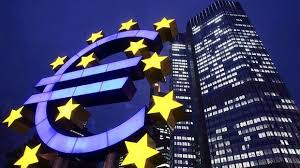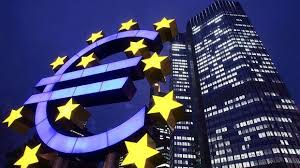
Investing in European companies isn't far-fetched even as the landscape in Europe is changing, analysts say.
Primarily due to geopolitical concerns posing risks to businesses in Europe as their products become more expensive abroad, there has been a more than 14 percent since the start of the year, in the euro which has strengthened against the dollar. While many market players believe European stocks still have a lot to offer, some analysts fear a market correction if the common currency keeps going up.
"We like European equities," Nandini Ramakrishnan, global market strategist at JP Morgan Asset Management said on Tuesday morning, she said this despite recognizing that there are risks in Europe, including a higher euro and elections in Italy next year.
"For the first time in several years, European equity earnings are increasing throughout the course of this year rather than decreasing and the biggest technical argument for that is the fact that 60 billion euros ($72.29 billion) exited European equities in the past two years, 20 billion euros ($24.09 billion) of that are back in, there's still 40 billion euros ($48.18 billion) waiting on the sidelines," she noted.
In the first quarter of 2017, European companies reported a 25 percent profit growth. Furthermore, as investors have switched their positions from the U.S. into a more politically-certain Europe, the Stoxx 600 has been on the rise since the start of the year by about 1.7 percent. At a time when the policy direction in the U.S. became more unclear, money managers have flocked to European stocks as the election calendar in Europe has cleared and political risks dissipated.
At the same time, growing and showing signs of recovery is the European economy. After posting a 0.5 percent growth in the first quarter, the euro zone grew at a pace of 0.6 percent in the second quarter of the year, showed official data from the European statistics office.
Money managers have been convinced by the economic momentum, the reduced political risk, and the performance of European companies.
Despite the strengthening euro, analysts at UBS have revised their positions on the European market. "We are increasing our allocation to the European domestic market," UBS said in a note on Tuesday.
"Stocks exposed to the European domestic economy have shown consistently better earnings per share (EPS) momentum than the market since late 2016. In recent months, this increased further and reached the highest level in over a decade. This is in contrast to the long period of downgrade post the financial crisis and suggests we could continue to see upgrades going forward," the bank said.
This is a moment to wait, some analysts believe however. European companies could be performing better if the currency hadn't gained as much strength and the good performances of European companies have been impacted by the stronger euro, Yves Maillot, head of European equities investment division at Natixis Asset Management said on Monday.
"We have to wait…but I do think that if the upward trend of the euro continues we can fear a new market correction," he said.
(Source:www.cnbc.com)
Primarily due to geopolitical concerns posing risks to businesses in Europe as their products become more expensive abroad, there has been a more than 14 percent since the start of the year, in the euro which has strengthened against the dollar. While many market players believe European stocks still have a lot to offer, some analysts fear a market correction if the common currency keeps going up.
"We like European equities," Nandini Ramakrishnan, global market strategist at JP Morgan Asset Management said on Tuesday morning, she said this despite recognizing that there are risks in Europe, including a higher euro and elections in Italy next year.
"For the first time in several years, European equity earnings are increasing throughout the course of this year rather than decreasing and the biggest technical argument for that is the fact that 60 billion euros ($72.29 billion) exited European equities in the past two years, 20 billion euros ($24.09 billion) of that are back in, there's still 40 billion euros ($48.18 billion) waiting on the sidelines," she noted.
In the first quarter of 2017, European companies reported a 25 percent profit growth. Furthermore, as investors have switched their positions from the U.S. into a more politically-certain Europe, the Stoxx 600 has been on the rise since the start of the year by about 1.7 percent. At a time when the policy direction in the U.S. became more unclear, money managers have flocked to European stocks as the election calendar in Europe has cleared and political risks dissipated.
At the same time, growing and showing signs of recovery is the European economy. After posting a 0.5 percent growth in the first quarter, the euro zone grew at a pace of 0.6 percent in the second quarter of the year, showed official data from the European statistics office.
Money managers have been convinced by the economic momentum, the reduced political risk, and the performance of European companies.
Despite the strengthening euro, analysts at UBS have revised their positions on the European market. "We are increasing our allocation to the European domestic market," UBS said in a note on Tuesday.
"Stocks exposed to the European domestic economy have shown consistently better earnings per share (EPS) momentum than the market since late 2016. In recent months, this increased further and reached the highest level in over a decade. This is in contrast to the long period of downgrade post the financial crisis and suggests we could continue to see upgrades going forward," the bank said.
This is a moment to wait, some analysts believe however. European companies could be performing better if the currency hadn't gained as much strength and the good performances of European companies have been impacted by the stronger euro, Yves Maillot, head of European equities investment division at Natixis Asset Management said on Monday.
"We have to wait…but I do think that if the upward trend of the euro continues we can fear a new market correction," he said.
(Source:www.cnbc.com)





